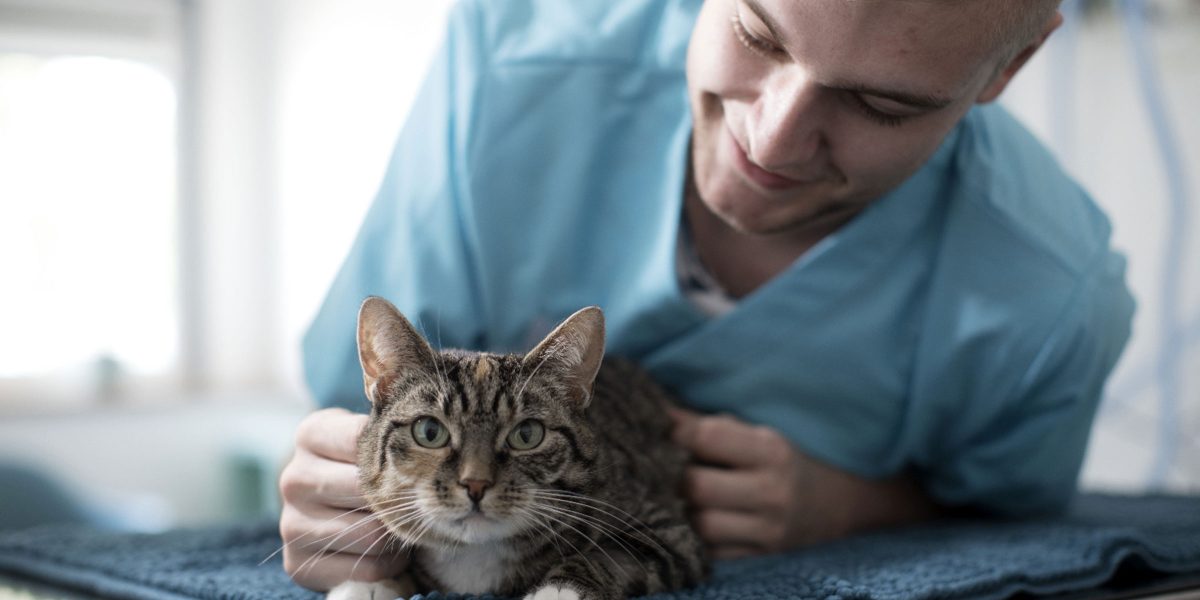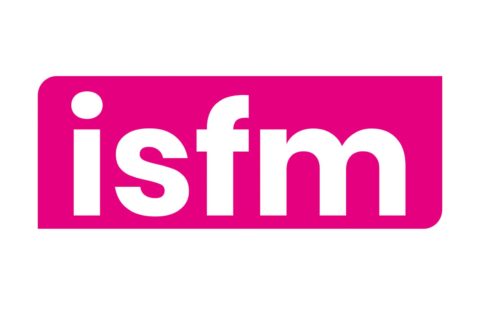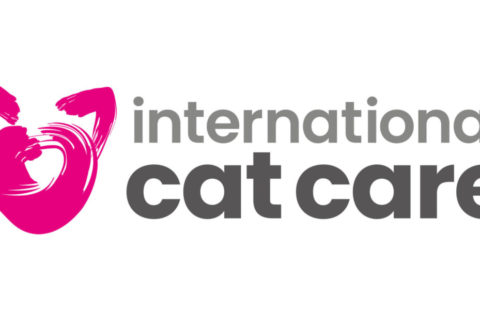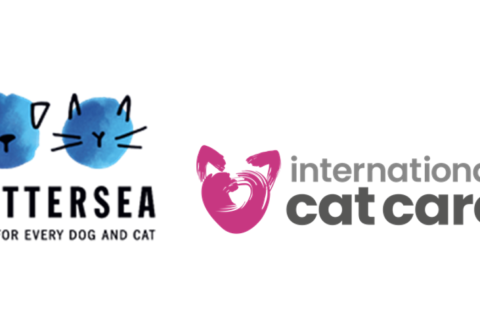May is Veterinary Nurse Awareness Month (VNAM) and here at International Cat Care we are delighted to support the campaign and veterinary nurses across the globe.
Developed and promoted by the British Veterinary Nursing Association (BVNA), the purpose of VNAM is to spread the word about the importance of the role of the veterinary nurse in practice and the provision of responsible pet care to the general public.
Becoming a veterinary nurse involves between 2 to 4 years of study combined with working in veterinary practice and rigorous exams demonstrating both theoretical knowledge and practical ability. Like vets, veterinary nurses also have to learn about a variety of species unlike our ‘human’ nurse equivalents who only have to deal with one species!
In human healthcare we are aware of lots of different professionals; anaesthetists, phlebotomists, radiographers, nutritionists, theatre nurses, consulting nurses, dental hygienists, receptionists, cleaners – veterinary nurses must master all these skills, and more!
At International Cat Care we understand the importance of the role of veterinary nurses and provide many resources to support them during their career. Our nursing learning organiser Sarah Collins is a veterinary nurse herself, so who better to chat to about this amazing profession!
What made you want to become a veterinary nurse?
I grew up around animals and knew from a young age that I wanted to be a veterinary nurse, even then I appreciated the importance of the role of the VN and how it differs from being a vet – veterinary nurses are not vets in training!
How did you become a veterinary nurse?
I trained as a veterinary nurse via the vocational route – I had to find a job in a practice which was approved to train nurses and work full time with one day a week at college for 2 years. This involved me moving a long way away from home as these jobs are very difficult to come by. Two and a half years later, after a lot of hard work and study, I passed my exams and was officially able to call myself a ‘Veterinary Nurse’.
Is this the only way to become a veterinary nurse?
No, it is now also possible to do a degree in veterinary nursing – a 4 year full-time programme including a mixture of time at university learning and working in practice. Both routes lead to a qualification in veterinary nursing recognised by the Royal College of Veterinary Surgeons in the UK.
What are your special interests within veterinary nursing?
My particular interests are in emergency and critical care and nutrition – nutrition of the critical patient being my favourite subject! I was lucky enough to work as an intensive care nurse at Bristol Vet School for 7 years where I gained a specialist qualification in emergency and critical care and I have also achieved some nutritional qualifications too.
Can veterinary nurses specialise in a particular area?
Yes! There are many opportunities for veterinary nurses to specialise in a particular area, especially when working in large referral centres. Subjects include: oncology, radiography, emergency and critical care, surgery/theatre, anaesthesia, behaviour and of course feline nursing amongst many more.
There are also lots of other jobs outside of practice where a veterinary nursing qualification is particularly useful too, such as sales or advisory roles and education.
Do veterinary nurses have to keep up to date?
Yes, like vets, nurses must also make sure that they keep their skills and knowledge up to date. In the UK, nurses must provide evidence of continuing professional development (CPD) of at least 15 hours per year, although most do much, much more than this. CPD can take the form of watching webinars, reading journals or attending conferences amongst other things.
What does your role at International Cat Care involve?
I run all the International Society of Feline Medicine (ISFM) feline nursing courses as well as the ISFM webinar programme. This involves keeping current courses up to date as well as creating new ones and organising and hosting our monthly webinars.
I worked in veterinary practice for nearly 20 years, so I am fully aware of the challenges veterinary nurses face on a daily basis. This helps with the other side of my role which is to support nurses whilst they are learning with us.
What courses do ISFM offer for nurses?
We have 3 great tutor supported courses which run over a 1-2 year period;
Foundation Diploma in Feline Nursing
Advanced Feline Behaviour for Cat Professionals
We also have 3 short courses which nurses can do at any time;
Cat Friendly Veterinary Professional
Advanced Feline Dentistry for Veterinary Nurses
ISFM Feline Emergency and Critical Care for Veterinary Nurses
All our courses are 100% online with no exams, so ideal for nurses working in practice who want to learn more about cats!
For VNAM 2021, we’re offering a 20% discount on selected courses, find the full list and discount code here.
What else can ISFM offer veterinary nurses?
ISFM also offers FREE membership for veterinary nurses. This includes some great benefits such as a monthly journal, newsletter and webinars, so if you are a veterinary nurse then why not sign up today! We also run several conferences and events during the year which are ideal for veterinary nurses.
You can find out more by following the links below






